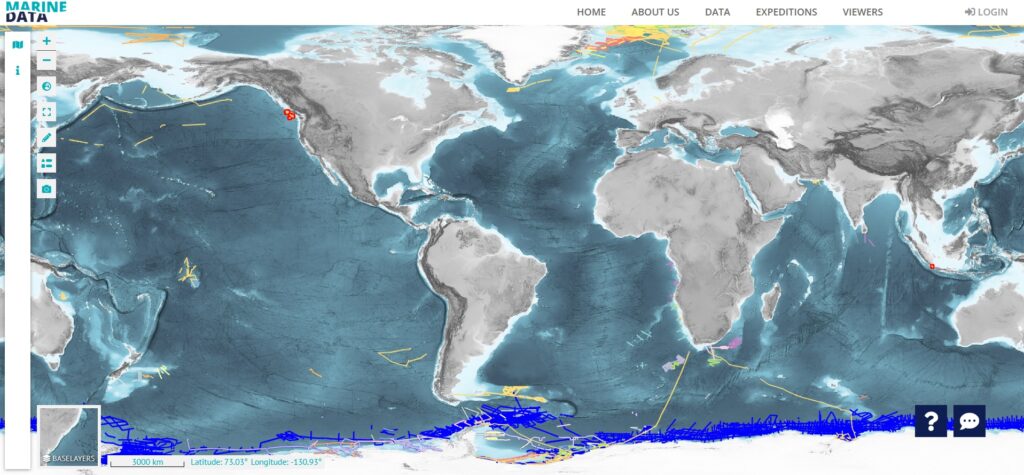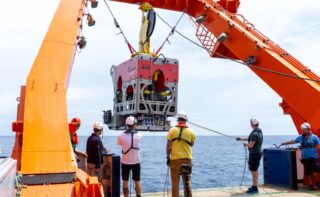
Uniform standard for marine seismic data
German marine scientists agree to publish marine seismic data according to FAIR principles
A milestone for data management in German marine research: The leading German marine research institutions have agreed to record and publish the marine seismic data they collect under a uniform standard. The agreement ensures that seismic data collected on board German research vessels and published in the PANGAEA-Repository complies with the FAIR data principles – i.e. it is findable, accessible, interoperable and reusable. Seismic data provides information about the Earth’s interior, including geological layers, tectonic activity and potential resources such as oil or natural gas, and is collected using sometimes complex methods and equipment. With the uniform publication standard, the data sets will in future be openly accessible and usable for scientists from all marine research institutions and beyond.
The collaboration, which is led by the German Marine Research Alliance (DAM) as part of the core area of data management and digitization and supported by the DataHub initiative of the Helmholtz research field “Earth and Environment”, marks a significant advance in the management of marine seismic data. Important contributions come from the northern German universities of Kiel, Hamburg and Bremen as well as from non-university research institutions such as the Alfred Wegener Institute for Polar and Marine Research (AWI), the GEOMAR Helmholtz Center for Ocean Research Kiel and the Federal Institute for Geosciences and Natural Resources (BGR).
To further improve the accessibility and usability of the data, seismic metadata published in the data portal for earth and environmental sciences PANGAEA will in future be visualized semi-automatically in the Marine Data Portal – the data portal of German marine research marine-data.de. Now available in the beta version, the Marine Seismic Compilation Viewer offers researchers a powerful tool for accessing and analyzing nationally and internationally collected seismic data.
Marine data management for sustainable ocean research across national borders
In marine research, huge amounts of data are collected every year using sophisticated methods and equipment: Long-term observation devices collect a wealth of information on and below the water’s surface. Underwater robots, observatories and research vessels measure and store various parameters – from water temperature to indicators for the use and pollution of coasts and oceans. As access to the collected research data is often difficult and not clearly regulated, the potential of this valuable treasure trove of data is currently not being fully exploited.
The DAM has set itself the goal of making research data accessible to science and society on a long-term and sustainable basis. In order to promote transparent science and innovation, the DAM is developing standards and processes in the area of data management and digitization in its research data management concept that improve open and uniform access to decentralized data sets of German marine research. Using the example of marine seismic data, German marine research once again underlines its commitment to promoting open, cross-institutional science, supporting innovation and the sustainable exploration of the oceans.
Newsletter
Always up to date with the DAM newsletter. (German only)



